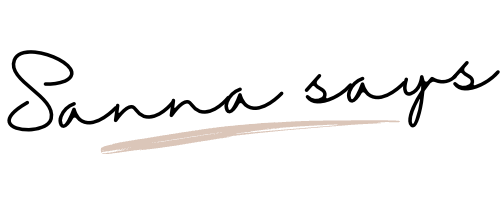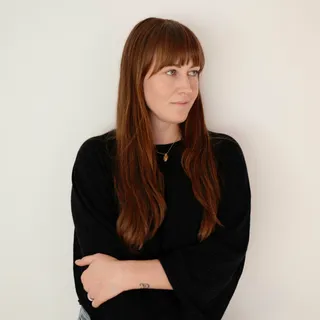Frankenstein's boobs
I had breast reduction surgery and now I want to talk about it.
It's 7.30 in the morning and I'm on my way to the hospital where a surgeon is going to slice my breasts open, cut out tissue and fat, and stitch them back together. This is absurd, I remember thinking, sitting in the passenger seat, watching the light change as the sun rose. Who spends a significant chunk of their savings on surgery they technically do not need?
Me. Apparently.
And all the women in the world as sick and tired of having large breasts as I am and decided to do something about it. We are many, I have found out since I went down the rabbit hole six months ago. Young, old. Before having kids, after having three. Women with cup sizes I did not even know existed who left their clinics two kilos lighter. Every single one, even the ones with horror stories about wounds that opened, leaking blood and pus, who required multiple follow-up procedures, still say they don't regret it.
Had my motivation been purely cosmetic I might not have been able to justify it to myself. But this was a case I had been building since my breasts suddenly appeared, and ambushed me into becoming a woman before the mature age of fourteen. One day I blended in, the next none of the boys would look me in the eyes.
(Guess where they looked instead.)
My friends bought their bras at H&M. Cheap, accessible. That was only briefly an option for me and I learned that comfortable bras above D-cups were not to be found in your average shop. At least not early 2000s. But not even paying €150 would spare my shoulders from the discomfort of the straps, leaving deep, red marks that lasted long after I freed them from their lacy prison.
And don't get me started on anything strapless. Years ago I bought the hyped Wonderbra which sat so tight around my ribs one could pop if I risked taking a deep breath, and it made my cleavage resemble two pieces of dough on a serving platter. I wore it twice, bravely, and it’s been collecting dust ever since.
The main reasons one does this is of course the pain and physical limitations it brings. Your back, shoulders and neck carry the weight, discomfort is the norm, and doing high-intensity activities can be a challenge. I was no exception in my twenties. These days it is less of an issue, since I built more muscles than the average person has the time and energy to do. I practice pole dance, yoga, and lyra, which has given me what my partner once called "bull shoulders" (sidenote: comparing your girlfriend to a bovine might not be the loving compliment you think it is).
In conclusion, the aesthetics was only a part of it, and anything making them smaller would be an improvement. Or, as I told the surgeon when I decided to go through with the procedure, "they can't really get worse".
I woke up after surgery feeling drowsy from what I assume was a powerful cocktail of drugs, but fine otherwise. No pain, no nausea. I was free to leave a few hours later.
Two days later I went back to remove the drains that were attached to each breast, gathering blood and other fluids. Not the most pleasant of experiences. After this I was allowed to shower again, and I could take a proper look at the result. I took off my surgical bra. Stared in the mirror. A little voice in my head whispered "What the fuck did you do?"
Some surgeons use tape to cover the wounds, which looks pretty neat from what I've seen on YouTube videos and people posting their healing journey on Reddit. Mine had opted for surgical glue. My breasts looked like they'd starred in a slasher movie and now an intern had to piece them back together. Hence; Frankenstein's boobs.
Healing is a process, I told myself, and stepped away from the mirror. I thought about when I was 12 and the time after my horse riding accident when my face was full of stitches, and I took down all mirrors in the house until it was healed and my reflection didn't scare me anymore.
Twice a week I went back for physiotherapy. The process becomes familiar: I take my top off, the clinician takes a photo to send to the surgeon, I lay down on the table, and she massages my breasts for twenty minutes. Her favorite playlist consists solely of 90's and 00's love songs and that's what we listen to, without exception.
My first time there I told her it looked pretty bad, as if I needed to prepare her before I took the bra off. My breasts were mostly various shades of yellow, but the bottom left one was bright blue and purple.
“No, it’s normal," she said. “It’s probably where the surgeon tested the implants.”
“Implants? I don’t have implants. At least I'm not supposed to?!" There was a slight panic in my voice.
“Oh,” she said and poked one with her finger. “No, all natural! Very good job!”
Picture two balloons, filled to maximum expansion with water, the material almost transparent. That's what my breasts felt like for the first ten days. Not much pain, just the distinct sensation that if you poke them, they might explode. Which didn't happen, despite a few too-enthusiastic hugs from friends.
Sleep was, as usual, my greatest recovery challenge. I'm a side-sleeper, and even in the best of times a water drop falling on the floor in a different room will wake me up. Now I had strict orders to sleep on my back, slightly elevated, for at least four weeks. Sleeping pills, albeit in small doses, was what kept me sane.
These were all minor inconveniences that had little impact on my general spirit though. I've been in the best mood post-surgery. Maybe the low-key depression I’ve had since 2020 was rooted in the 315 grams of tissue removed.
It took two weeks to no longer be hyperaware of them. Another month and I was back at the aerial studio.
Today I'm two months post-op and I don't actually think about them much. I go upside down on my lyra and they don't fall out. I wear a tight t-shirt and it fits the way it was intended. I take my bra off and there are no red marks on my shoulders.
They are just there, part of my body, not an extra factor I need to consider. Going through surgery is a big decision, and it always comes with risks. It's not the right choice for everyone, but it certainly was for me.
The newsletter
Every once in a while I will share updates – feel free to subscribe.




